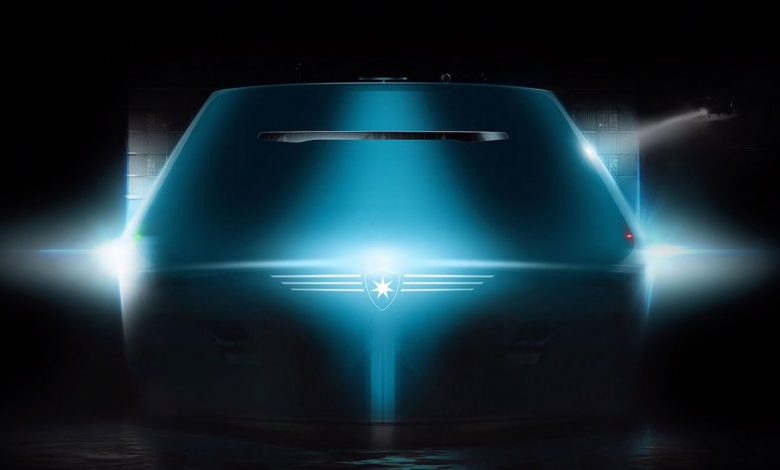Overthinking it: How the environment will impact shipping

Continuing his contrarian series for Splash, Charlie Du Cane, commercial director at Seastar Maritime, assesses where big names in the industry are getting it wrong when it comes to green investments.
Recently I have come to the conclusion that the shipping industry completely missed the point about what happened in the lead up to January 1 this year. This wasn’t about an industry taking rational decisions in response to a changing environment. The lesson isn’t simply that we possibly shouldn’t have bought those scrubbers – although we really shouldn’t. The lesson definitely wasn’t we can game this whole green thing by moving air pollutants into the water – how many coastal regions have banned the use of open loop scrubbers? Equally, the main lesson isn’t that we should be a bit ashamed that as an industry we went along with such gamesmanship – although maybe we should be.
No, the real lesson is that our industry, confronted with one simple, albeit slightly over prescriptive, regulation, had a corporate nervous breakdown, blew billions of dollars on now apparently redundant equipment, wasted endless management hours wondering what the hell we were meant to do – and the more we thought about it – the worse our decision-making became.
We aren’t actually that good at anticipating and dealing with external change, especially of the regulatory nature
In other words we aren’t actually that good at anticipating and dealing with external change – especially of the regulatory nature.
For an industry that rightly prides itself on its entrepreneurialism and ‘can do’ attitude in the face of adversity we seem to be entirely unaware that all the tectonic plates are shifting under us and we don’t even know what questions to ask. A great example of this is Maersk’s commitment to invest in carbon-neutral ships by 2030 so they can meet 2050 targets agreed in the Paris Accords. Equally, on the bulk side, there is the Green Corridor project in Asia – building LNG-fuelled ore carriers to feed the Asian industrial juggernauts in a more environmentally friendly way.
Both of these are noble projects thought up by intelligent, well-meaning people who probably do worry about the environment and want to take action. It also suggests that they think global trade will probably continue roughly in its current form, just in a more sustainable manner. That tells me that the shipping industry hasn’t got a clue what is coming down the track. These guys are still trying to play soccer after some kid called Ellis picked up the ball and changed history.
Lockdown has given us all a chance to pause and listen to what is actually going on around us and it should be clear to everyone now that, accelerated by Covid, the world is coagulating around two great themes – a radical green revolution that now has an astonishing level of consensus across national and political divides; and, partially linked to this, a determination to re-shore as much as possible and end a 30-year reliance on a Chinese dominated supply chain.
In this context I would suggest the forward thinking people at Maersk are making several probably erroneous assumptions, and the simplest of our problems, what will ships be powered by in the future, is the only question they are considering, and even then there is no consensus at all in this regard. Far more complicated, and completely not considered in the thinking of those investing in the Green Corridor, is that consumption and trade patterns will likely change so fast and so far in the next decade, that the ships we need will be carrying different things to different places in different volumes – if we need ships at all at the other end of this process. Most vexing is there is an avalanche of green regulation coming and when it comes to politics, who the hell knows what next week brings.
So what is shipping going to look like in the next few decades? It’s going to be chaos. Billions of dollars will be misallocated, ‘green’ ships will come off slipways and head straight for the breakers yards – if such places haven’t been outlawed, and shipyards will go to the wall as confused shipowners simply don’t know what to order. But for some, who really understand what shipping is all about, this chaos is going to be the entrepreneurs’ paradise that shipping has always been, and their fortunes will be made or doubled.
Anyway it’s going to be quite a ride.

Mr Du Cane, a lot to say about what everyone else is doing wrong. Do you offer an opinion about what you think we SHOULD be doing? We can all sit back and throw grenades…!
The heavy hand of regulation is never easy to deal with. Especially with poorly written laws by inept if not corrupt bureaucrats and politicians. Who, by the way are unaccountable for their actions. So yes, billions of dollars are wasted. That’s the the history of government regulation.
Probably Maersk is making erroneous assumptions but if it gives you the subsidies you need to survive, then there is no alternative. In other words “looting taxpayers” in 2020 is not optional, is a real need.
Absolutely excellent article.
(I would say that, wouldn’t I!)